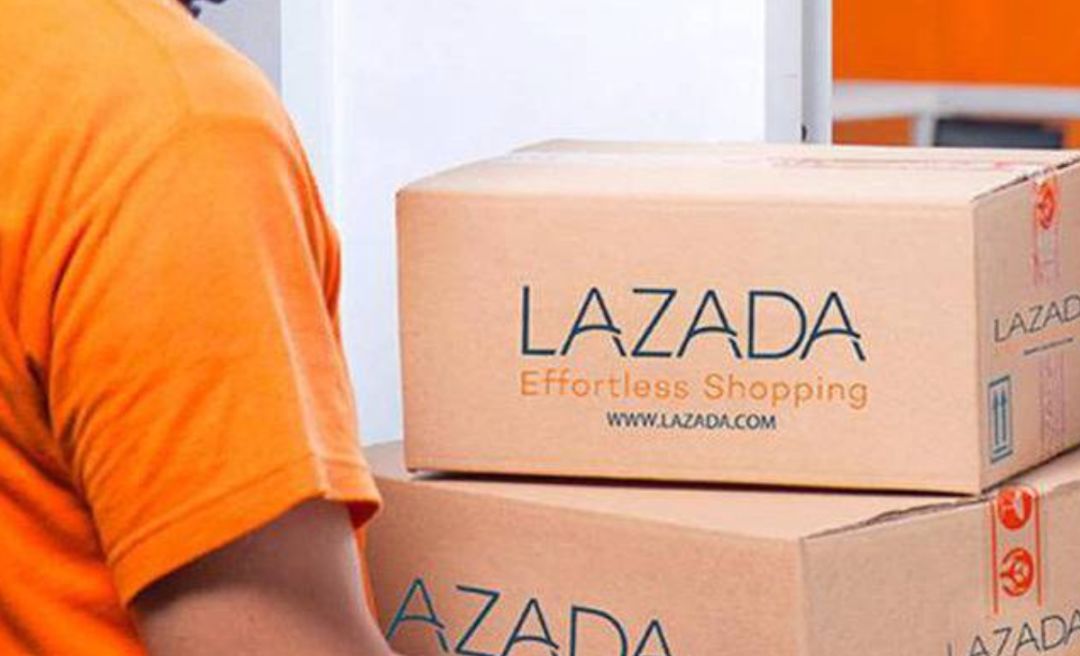Helping the seller means helping the platform itself.
Editor’s note: This article is from the micro-channel public number “Chi as the network” (ID: passagegroup) , Author: Liu Yiqing.
The overall control of the epidemic is in sight, but the impact on the economy is gradually emerging, especially for small and medium-sized cross-border retail exporters. They have weak anti-risk capabilities and are under tremendous pressure. The seller and the platform depend on each other, the seller’s life is sad, and the platform will be uncomfortable. Zhixiang.com has learned that almost all cross-border e-commerce platforms have “unpacked” one after another, and have launched a support policy for Chinese sellers, especially small and medium-sized cross-border sellers.
Zhixiang.com interviewed a number of well-known cross-border e-commerce companies in Asia such as Meesho, Shopee and Lazada. They tried to reduce the operating pressure and financial pressure of Chinese sellers from the aspects of settlement, logistics, and traffic.
Meesho, a social e-commerce company in India: Increasing traffic, relaxing entry barriers for investment promotion
Meesho India ’s largest social e-commerce company. In the D round of financing last August, the company received a lead from Tencent’s major shareholder Naspers. Xiaomi founder Lei Jun’s Shunwei Capital, Facebook, and Sequoia India participated in the investment $ 125 million in financing.
Meesho connects more than 5,000 Indian towns and about 10 million distributors. In August 2019, Meesho began to attract investment in China to help Chinese sellers go to India. At present, there are about 500 Chinese sellers on the platform.

Image source: Entrackr
On March 3, Meesho released support measures for Chinese sellers during the epidemic period: moderately relax the entry threshold for investment promotion, and lean towards small, medium and micro enterprises. At the same time, the account opening review process was accelerated, and the length of time from submitting complete application materials to successful account opening was adjusted from 2 to 4 weeks to 7 working days.
In addition, Meesho has also broadened the merchandise category. In addition to the original clothing and accessories, new beauty, home furnishings, home textiles, kitchens, electronics and shoes will also receive preferential policies when attracting investment. The head of Meesho China told Zhixiang.com that the previous investment model tended to take precedenceApproval of clothing and apparel sellers, although investment invitations have been opened for other categories, but the review threshold is high. During the epidemic, the company is prepared to lower the review threshold for these categories and speed up the review.
In late February, Meesho and Lianlian Pay reached a cooperation and launched the Lianlian Meesho payment service, so that Chinese sellers can enjoy a one-stop solution from opening a store to receiving money. During the epidemic, it is also ensured that Chinese sellers’ repayments are more punctual and efficient.
In terms of logistics, all airlines in China and India are transported by cargo aircraft, which avoids the risk of aging due to cancellation of passenger flights. At the same time, Meesho provides free Indian warehousing services to Chinese sellers and encourages Chinese sellers to store goods overseas.
The platform also customizes an exclusive entrance for Chinese sellers, and KA sellers (key customers) enjoy one-to-one guidance and services from the operation manager. The person in charge stated to Zhixiang that from the perspective of traffic tilt, the platform opened a “Global” first-level traffic entrance for all Chinese sellers. Second, all Chinese sellers will get a certain number of new products regardless of the conversion rate. Page views.
Shopee: 50% reduction in logistics costs
After the Spring Festival, Southeast Asian e-commerce platform Shopee has successively launched support policies for Chinese sellers.

Image source: Philippine Star
After finding out about Chinese sellers on the platform, Shopee learned that sellers are affected differently due to different sellers’ selling categories, stocking strategies, and logistics channels. To this end, Shopee launched the “Seller Recovery Plan”.
In early February, the platform preferentially introduced policies such as the extension of the exemption of logistics aging, the exemption of seller points, and the exemption of restrictions on the number of pre-sale products. It mainly alleviates a series of problems caused by the failure of merchants to ship in time, late shipments, and uncompleted orders due to logistics reasons.
For new entrants, the platform has launched a “five free policy” of no commission, free shipping, free handling fee, free waiting, and free training. Specifically, it includes the extension of the free commission period for new stores to 120 days; the first free quota for “full store shipping” activities; the first free quota for “shopping rebates” activities; accelerated store verification, priority review of key epidemic areas, etc.
Aiming at existing sellers, the platform has lowered the commission standard comprehensively since March to reduce sellers’ operating costs; launched a keyword advertising fund support policy, and the sellers widely used on the platform in March.20% of the total consumption will be charged to the original store in the form of advertising funds; integrating internal and external resources, and opening an “online training program”, covering operations, selection and other aspects.
Shopee told Zhixiang.com that the support policies of the above items are different from the investment support policies. Implementing the policies for existing sellers requires multi-party coordination, including follow-up traffic support, etc. Colleagues discussed, so the platform is still gradually releasing support policies for small and medium-sized sellers.
In terms of logistics, the freight rates of heavy goods channels delivered by sellers to the markets of Malaysia, Thailand, Singapore, and Vietnam have been fully reduced, and the rate of decline has been up to 50%.
Shopee told Zhixiang.com that the support provided to Chinese sellers can be summarized in two parts. The first is to help sellers get out of the sea obstacles from the process. Relieve sellers’ logistics pressure caused by delayed resumption of domestic logistics providers and reduction in the number of transnational flights; and store pressures due to insufficient supply in the market, and stores are worried about operating pressure caused by violation of platform rules.
Second is to help sellers resume operations at a relatively low cost. The platform alleviates the financial pressure on sellers due to the increase in upstream and downstream costs by providing commission reductions and free paid services.
Lazada: “Spring Plan” starts
Lazada, a Southeast Asian e-commerce platform owned by Alibaba, also recently released a support plan for Chinese sellers.

Image source: Daily Tribune
Since March 2nd, Lazada has launched the “Spring Breeze Plan” in response to the problems faced by Chinese sellers, such as the fact that they cannot return to work, cannot operate normally, prolong the supply chain cycle, and increase operating costs.
Lazada’s “Spring Breeze Plan” is launched from multiple dimensions including policy support, business empowerment, service upgrade, and operation incubation. At present, Lazada mainly starts from the logistics side, and has gradually reduced the international freight including Thailand and Vietnam stations.
On March 2nd, the first round of Lazada’s “Spring Breeze Plan” lowered the international freight rate of Thailand Station by a maximum of 90%, which is applicable to valid orders generated from March 10. On March 9, the second round of the “Spring Breeze Plan” was launched. The international freight rate of Lazada Vietnam Station dropped by up to 96%, which is applicable to valid orders generated from March 16.
Also, the sea of Lazada MalaysiaOuter warehouse also continued to allow profit merchants, and the corresponding rates were all reduced by 50%. The overseas warehouse discount rate includes sea freight and storage fees, which are collected in the form of parcels when the order is generated.
Lazada told Zhixiang.com that the platform is going all out to speed up the promotion and implementation of various favorable policies. Freight reduction is one of the support plans given after comprehensive feedback from merchants and internal discussions on the platform. It involves different countries and the corresponding policies are different. Lazada is still actively communicating. Freight adjustments in different countries will also be divided in the future. Phase launch.
In addition, Wish, a cross-border e-commerce giant, has also joined the battle to help Chinese sellers.

Image source: Vox
On February 1, Wish first introduced 7 support policies for Chinese sellers during the epidemic period, including extended order fulfillment time, exemption of compensation, exemption of order refund liability, and exemption of delayed overtime fee. Wish said that Chinese sellers need not worry about the refund rate and poor order fulfillment rate caused by the epidemic, which will affect store operations and product sales.
On February 12, Wish extended the implementation period to March 1 in response to previous support policies. Subsequently, Wish extended the application of the above policies again on March 4.
Wish said that from March 1st to 15th, Wish will continue to provide a number of policy support to Chinese merchants on the issue of seller shipments and delayed arrival of goods due to logistics. Specific measures include: extending the time required to confirm the fulfillment of orders that meet the policy requirements, confirming the time to make the correct investment, continuing to waive the delay in confirming the payment of compensation, and EPC exempting the timeout fee for warehouse receipts.
In addition, Wish also organized a number of live online courses to help sellers smoothly through the epidemic period. The platform held an online conference on resumption of operations on March 6th and 9th to help merchants understand the current market situation under the epidemic situation, how to resume operations, how to use platform policies, logistics operation guidance, and how to improve anti-risk capabilities.
Editing | Li Xiaomeng, typesetting | Richard , site | https://zxwpost.com/

After the Spring Festival, Southeast Asian e-commerce platform Shopee has successively launched support policies for Chinese sellers.

Image source: Philippine Star
After finding out about Chinese sellers on the platform, Shopee learned that sellers are affected differently due to different sellers’ selling categories, stocking strategies, and logistics channels. To this end, Shopee launched the “Seller Recovery Plan”.
In early February, the platform preferentially introduced policies such as the extension of the exemption of logistics aging, the exemption of seller points, and the exemption of restrictions on the number of pre-sale products. It mainly alleviates a series of problems caused by the failure of merchants to ship in time, late shipments, and uncompleted orders due to logistics reasons.
For new entrants, the platform has launched a “five free policy” of no commission, free shipping, free handling fee, free waiting, and free training. Specifically, it includes the extension of the free commission period for new stores to 120 days; the first free quota for “full store shipping” activities; the first free quota for “shopping rebates” activities; accelerated store verification, priority review of key epidemic areas, etc.
Aiming at existing sellers, the platform has lowered the commission standard comprehensively since March to reduce sellers’ operating costs; launched a keyword advertising fund support policy, and the sellers widely used on the platform in March.20% of the total consumption will be charged to the original store in the form of advertising funds; integrating internal and external resources, and opening an “online training program”, covering operations, selection and other aspects.
Shopee told Zhixiang.com that the support policies of the above items are different from the investment support policies. Implementing the policies for existing sellers requires multi-party coordination, including follow-up traffic support, etc. Colleagues discussed, so the platform is still gradually releasing support policies for small and medium-sized sellers.
In terms of logistics, the freight rates of heavy goods channels delivered by sellers to the markets of Malaysia, Thailand, Singapore, and Vietnam have been fully reduced, and the rate of decline has been up to 50%.
Shopee told Zhixiang.com that the support provided to Chinese sellers can be summarized in two parts. The first is to help sellers get out of the sea obstacles from the process. Relieve sellers’ logistics pressure caused by delayed resumption of domestic logistics providers and reduction in the number of transnational flights; and store pressures due to insufficient supply in the market, and stores are worried about operating pressure caused by violation of platform rules.
Second is to help sellers resume operations at a relatively low cost. The platform alleviates the financial pressure on sellers due to the increase in upstream and downstream costs by providing commission reductions and free paid services.
Lazada: “Spring Plan” starts
Lazada, a Southeast Asian e-commerce platform owned by Alibaba, also recently released a support plan for Chinese sellers.

Image source: Daily Tribune
Since March 2nd, Lazada has launched the “Spring Breeze Plan” in response to the problems faced by Chinese sellers, such as the fact that they cannot return to work, cannot operate normally, prolong the supply chain cycle, and increase operating costs.
Lazada’s “Spring Breeze Plan” is launched from multiple dimensions including policy support, business empowerment, service upgrade, and operation incubation. At present, Lazada mainly starts from the logistics side, and has gradually reduced the international freight including Thailand and Vietnam stations.
On March 2nd, the first round of Lazada’s “Spring Breeze Plan” lowered the international freight rate of Thailand Station by a maximum of 90%, which is applicable to valid orders generated from March 10. On March 9, the second round of the “Spring Breeze Plan” was launched. The international freight rate of Lazada Vietnam Station dropped by up to 96%, which is applicable to valid orders generated from March 16.
Also, the sea of Lazada MalaysiaOuter warehouse also continued to allow profit merchants, and the corresponding rates were all reduced by 50%. The overseas warehouse discount rate includes sea freight and storage fees, which are collected in the form of parcels when the order is generated.
Lazada told Zhixiang.com that the platform is going all out to speed up the promotion and implementation of various favorable policies. Freight reduction is one of the support plans given after comprehensive feedback from merchants and internal discussions on the platform. It involves different countries and the corresponding policies are different. Lazada is still actively communicating. Freight adjustments in different countries will also be divided in the future. Phase launch.
In addition, Wish, a cross-border e-commerce giant, has also joined the battle to help Chinese sellers.

Image source: Vox
On February 1, Wish first introduced 7 support policies for Chinese sellers during the epidemic period, including extended order fulfillment time, exemption of compensation, exemption of order refund liability, and exemption of delayed overtime fee. Wish said that Chinese sellers need not worry about the refund rate and poor order fulfillment rate caused by the epidemic, which will affect store operations and product sales.
On February 12, Wish extended the implementation period to March 1 in response to previous support policies. Subsequently, Wish extended the application of the above policies again on March 4.
Wish said that from March 1st to 15th, Wish will continue to provide a number of policy support to Chinese merchants on the issue of seller shipments and delayed arrival of goods due to logistics. Specific measures include: extending the time required to confirm the fulfillment of orders that meet the policy requirements, confirming the time to make the correct investment, continuing to waive the delay in confirming the payment of compensation, and EPC exempting the timeout fee for warehouse receipts.
In addition, Wish also organized a number of live online courses to help sellers smoothly through the epidemic period. The platform held an online conference on resumption of operations on March 6th and 9th to help merchants understand the current market situation under the epidemic situation, how to resume operations, how to use platform policies, logistics operation guidance, and how to improve anti-risk capabilities.
Editing | Li Xiaomeng, typesetting | Richard , site | https://zxwpost.com/

